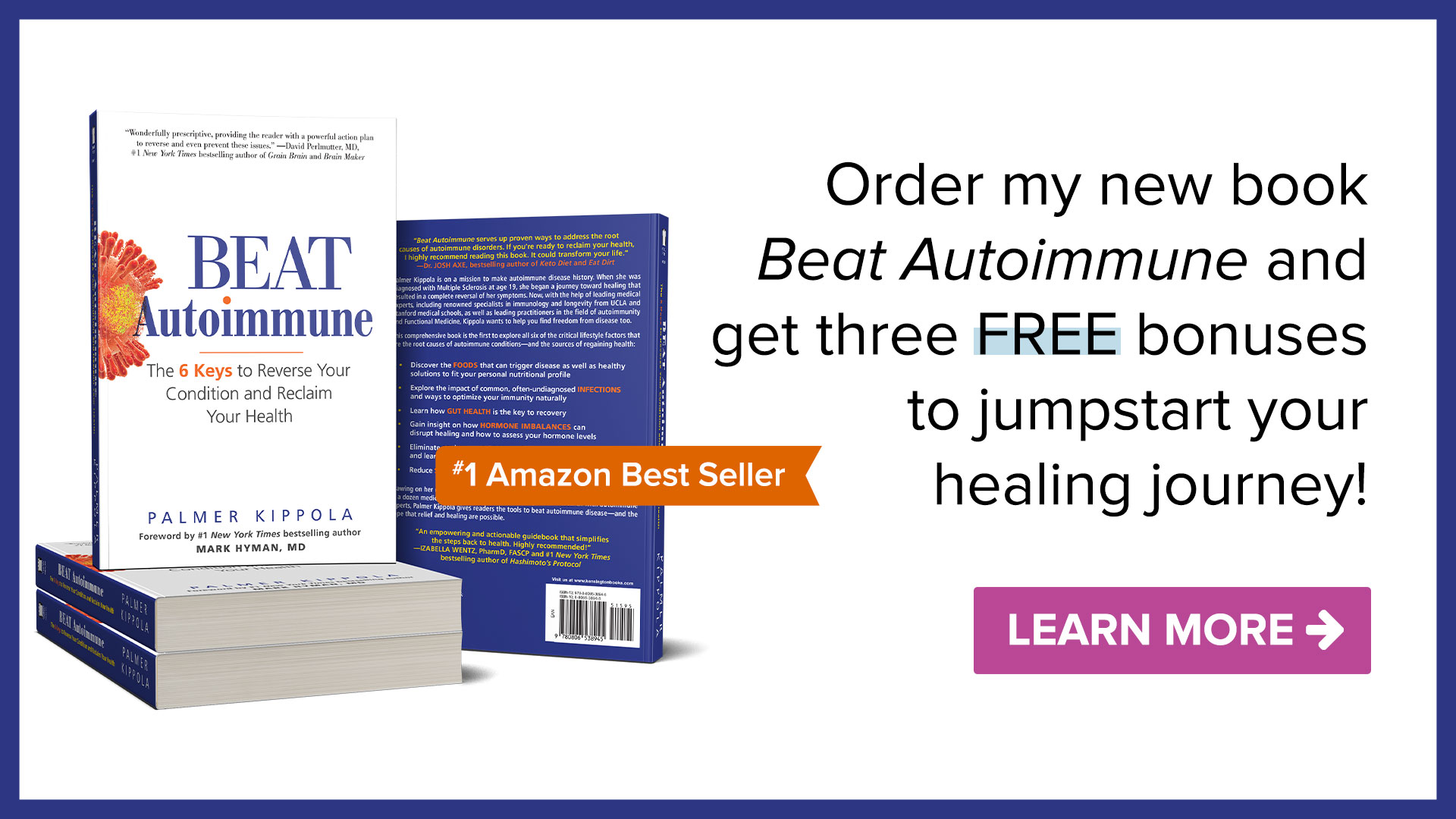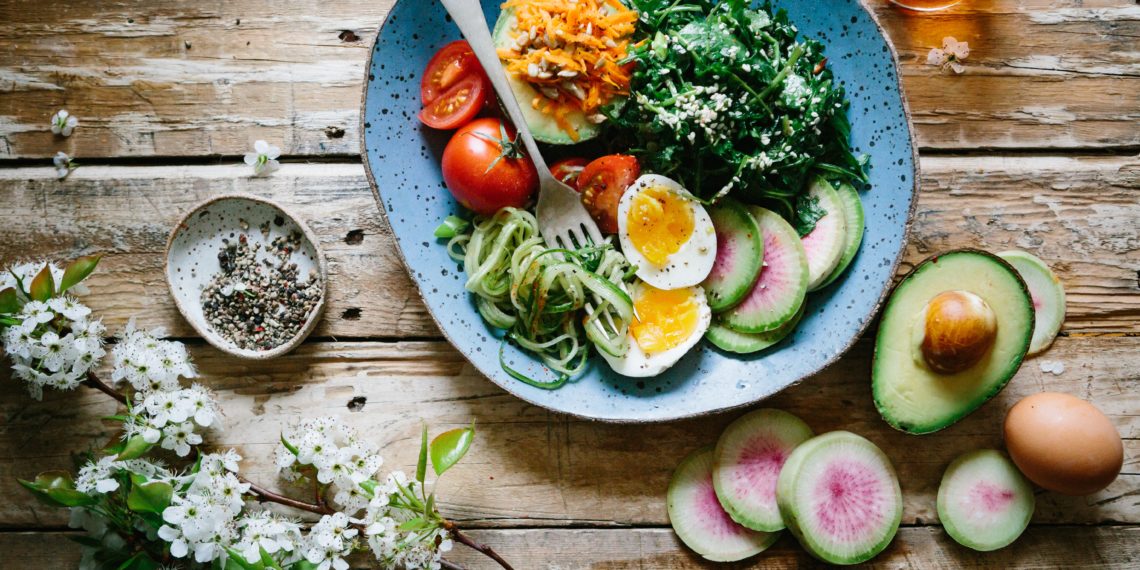
“You can’t control the virus, but you can control the host (that’s you!).”
— Rob Silverman, DC, CNC, author, Inside-Out Health
While these are unprecedented and trying times with the coronavirus pandemic, there is so much that you can do to create more certainty and control over your personal health outcomes. As you will see, there is no time to waste to get your immune system in optimal fighting shape, especially if you’re already dealing with an autoimmune condition, which is an immune system problem!
The coronavirus, unfortunately, is not taking the summer off. At this writing, as states have begun to reopen, we are facing what Anthony Fauci, director of the National Institute of Allergy and Infectious Diseases, calls a “surge” or “resurgence” of infection, with an increase in daily cases and deaths in southern and western states.
The Silent But Potentially Deadly Threat
A new study published by the National Academy of Sciences reveals that “silent spreaders,” people who have the coronavirus but haven’t yet developed COVID-19 symptoms, or who may never develop symptoms, may be responsible for half of all COVID-19 cases in the U.S. 1 The implications of silent transmission for the control of COVID-19 outbreaks; What makes this especially worrisome, according to study director, Yale University professor of epidemiology, Alison Galvani, PhD, is that the most infectious time for spreading the virus is in the first five days of contracting the virus, when people feel no signs of the coronavirus and have no fever. Young people, she says, are “disproportionately responsible” for this silent spread.
Bottom line, says Dr. Galvani, from a public health perspective, we should stay put until we have dramatically reduced the number of daily cases and until we have sufficient contact tracing in place.
This is a time that requires level-headedness and patience. If we make informed decisions, especially when it comes to matters of life and death, we will likely experience better outcomes for ourselves, our families, and the larger community.
People with Chronic Health Issues at Far Greater Risk
True, most people will survive COVID-19, and the majority of those who get it will experience only mild symptoms. On the other hand, those with chronic disease will face a more dire threat, both in mortality risk and potential long-term health consequences.
People with chronic health conditions such as elevated blood sugar, diabetes, obesity, heart disease, lung, liver or kidney problems, and any of the 150 autoimmune conditions including MS, lupus, RA, Hashimoto’s thyroiditis, celiac, and IBD may be ten times more vulnerable to a severe form of COVID-19 illness, including the dreaded cytokine storm of a runaway immune response which leads to respiratory distress, pneumonia, and even death.
Joseph Brennan, a cardiologist at the Yale School of Medicine, and other experts now worry there may be a subset of people who will suffer long-term and potentially life-long damage, including blood clots that can lead to strokes and heart attacks even in young people, lung scarring and ongoing respiratory problems, and neurological problems like brain damage, memory issues, and cognitive impairment. 2 What we know (so far) about the long-term health effects of Covid-19, Advisory.com, https://www.advisory.com/daily-briefing/2020/06/02/covid-health-effects
Why I’m Extra Concerned
As a Functional Medicine health coach, I’m personally extra concerned about COVID-19. Why? Because I’ve been in the higher risk group and continue to deal with underlying immune system challenges. In 2010, I beat a 26-year course of MS by finding and removing my triggers and healing my gut. Yet, health is not static. You don’t beat an autoimmune condition and that’s the end of the story. No.
Health takes daily work, proactive maintenance, and a courageous commitment to oneself to stay on the healing and prevention path.
I may be more vulnerable to infection than most, because I have the genes — the latent potential — for MS, along with persistent immune system burdens like chronic Lyme disease, reactivated Epstein Barr Virus (EBV), and ongoing food sensitivities. This means I need to step up my game and do what I can to safeguard my health and protect my loved ones — right now.
If you also struggle with autoimmune issues, you know how important it is to take good care of yourself, especially during times of heightened stress.
How F.I.G.H.T.S.™ Can Help Safeguard Your Health
Immune system experts agree this is a time to help our immune systems function at their peak. We can do this by embracing healthy daily lifestyle choices. While doing research for my bestselling book, Beat Autoimmune, I created a simple way for people to remember the major root cause categories we can control with the abbreviation F.I.G.H.T.S,™ which stands for Food, Infections, Gut health, Hormone balance, Toxins and Stress. It turns out that you help to prevent COVID-19 much in the same way you reverse or prevent autoimmune conditions.
My life’s mission is to help cut through the complexity and help people get back to vibrant health as fast as possible. While it took me 26 years to beat the MS, it doesn’t need to take you a fraction of the time or the money. By the end of this article you will have a number of tools and strategies to be better prepared. My clients, readers, and students are beating autoimmune and are in a much better position to deal with this COVID-19 threat. There is no secret sauce, no mystery to their success. They are following a proven framework that works time and time again. While the framework is simple, it’s not always easy to implement beneficial lifestyle changes.
That’s why I became a Functional Medicine health coach and it’s why I now work with people all over the U.S. who want to beat any of the 150 autoimmune conditions. It’s an efficient and effective process which includes a deep dive into root causes through modern, Functional Medicine testing, a comprehensive intake session and case review process, along with an actionable, holistic treatment plan. If you’re ready to reclaim your health, please consider Functional Medicine Consulting and sign up for a free 15 min call with me HERE.
The strategies below focus on COVID-19 prevention, not what to do if you get COVID-19. This is not intended as medical advice. My own MS prevention strategies are specific to my healing journey. You may find many of the same tips apply to you, but remember that healing is individual.

Start with Food
Food is the number one root cause category of autoimmune conditions. On the flip side, people with autoimmune issues often heal 60% to 100% just by changing what they eat! When you eat inflammatory foods or foods you have developed sensitivities to, your immune system goes on high alert, creating antibodies (missiles) to attack foods (protein molecules) that have breached the gut barrier. When your immune system is distracted by fighting foods, it is not optimized to fight real infections like COVID-19. These are my top 3 immune-strengthening food strategies:

Eliminate all inflammatory foods (e.g. grains, dairy, sugar, processed foods)
Gluten creates a leaky gut in anyone who eats it; 3 Effect of Gliadin on Permeability of Intestinal Biopsy Explants from Celiac Disease Patients and Patients with Non-Celiac Gluten Sensitivity, Hollon, J. et. al., Nutrients. 2015 Mar; 7(3): 1565–1576, https://www.ncbi.nlm.nih.gov/pmc/articles/PMC4377866/#; and a leaky gut is the fast path to autoimmunity. Most people who are sensitive to gluten are also sensitive to casein, the protein in animal dairy. In addition to promoting obesity and diabetes — both risk factors for autoimmunity and COVID-19 — sugar and processed foods block the immune system from functioning for up to 5 hours after eating it. 4Sanchez, A., et al.; Role of Sugars in Human Neutrophilic Phagocytosis; American Journal of Clinical Nutrition; Nov 1973; 261:1180-1184; http://ajcn.nutrition.org/content/26/11/1180.abstract

Remove all foods you are sensitive to
Beyond the usual suspects, gluten, dairy and sugar, it turns out I’m sensitive to eggs, soy, corn, grains, almonds, and vanilla (argh). I got confirmation on this from a recent finger prick blood spot IgG test. This is not a life-sentence on all these foods, it just means that I need to remove them for several months to give my immune system and chance to calm down and stop fighting my foods so it is available to combat real threats. If you are interested in working with me to help you identify your food sensitivities, please contact me.

Fast more, eat less often
Intermittent fasting, also known as “time restricted feeding,” reduces inflammation, strengthens the gut barrier, and helps you move from being a sugar burner to a more metabolically beneficial fat burner. Beyond metabolic benefits, fasting has been shown to rejuvenate the immune system through a process called autophagy, which clears out old, “senolytic” (damaged) cells, making way for new, more robust immune cells. I typically stop eating at 6 pm and don’t eat anything until 10 am or later for a 16 hour fast, also known as 16:8, for the 8 hour eating window. A couple days per week extend the fast by skipping dinner, and a couple of days I eat breakfast earlier to ensure my body knows it’s safe and not starving.
Heal Your Gut
The gut is ground zero for health and disease. It turns out 80% of the immune system is housed right there in the lining of the gut. A leaky gut and imbalanced microbiome are central to the development of autoimmune conditions, and if our immune systems are impaired, they are less able to fight nasty infections like COVID-19. I tend to my gut with these daily strategies:

Take probiotics and eat fermented food
This is one of my most important COVID-19 prevention strategies: seeding my gut microbiome with probiotics (beneficial bacteria). Lactobacillus, Bifidobacterium, and Saccharomyces probiotic species have been found to have a beneficial, modulating effect on the immune system. I take several brands to make sure I’m getting an assortment of immune-enhancing strains. Right now I rotate or layer: The Gut Institute’s Bifido Maximus, General Biotics’ Equilibrium, Microbiome Labs’ MegaSporeBiotic, and Seeking Health’s Saccharomyces Boulardii. Fermented food, like sauerkraut and kimchi may be loaded with more probiotics than capsules, so I eat a forkful or drink a shot glass of sauerkraut juice daily.
Note: I am currently offering a 15% discount normally reserved for my clients on professional-grade supplements in my Fullscript supplement dispensary.Fullscript typically offers better quality, bigger selection, and often at better pricing than Amazon.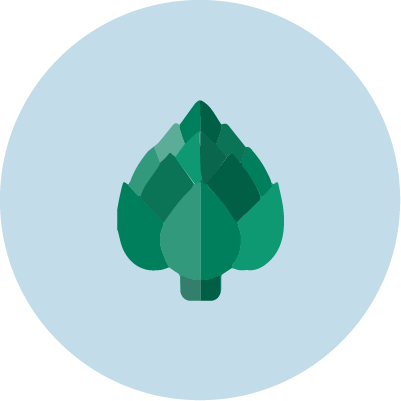
Feed the probiotics with prebiotics
Prebiotics are fiber. And fiber is what probiotics eat. If you don’t eat enough fiber, those beneficial bugs will start gnawing on your own mucus lining. When you eat fiber, your probiotics will pay you in dividends with myriad beneficial functions like creating hormones and neurotransmitters, protecting your gut lining, and modulating your immune response. I make sure to eat plenty of different types of vegetables such as dandelion greens, artichokes, avocados, flax, and chia seeds, plus supplemental powders like organic psyllium husk, acacia, and inulin.
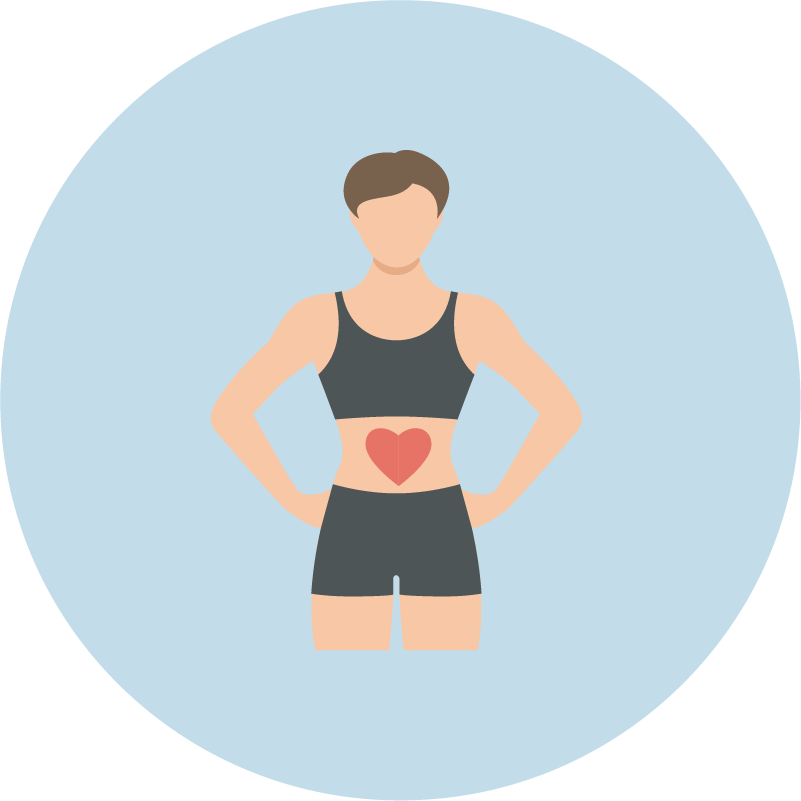
Seal a leaky gut with collagen
Collagen is the most abundant protein in our bodies, acting as a structural matrix and glue. It also helps repair a leaky gut, helping to protect and support the immune system, 80% of which resides in the gut lining. Almost every day I use 100% grass fed beef bone broth, collagen or gelatin. It’s one of the cleanest protein powders around. I make beef stew with bone broth and add extra gelatin to thicken and I add collagen, gelatin or bone broth powder per day in smoothies, soups, stews, curries, coffee and my keto cardamom pudding.
Clear Infections
Any number of infections can trigger autoimmune conditions; and having an autoimmune condition makes you more susceptible to further infections, especially if you’re taking immunosuppressive medication. Excess inflammation — caused by F.I.G.H.T.S.™ factors, and/or an existing autoimmune condition — puts your immune system in overdrive, which weakens immunity. This is what I’m doing to bolster my defenses against COVID-19 and deal with existing stealthy infections:

Empower Your Immune System
Eating a Paleo diet is one of the best strategies to reduce obesity, diabetes, and beat an autoimmune condition. Unfortunately our soils have become depleted of key nutrients and we simply can’t expect to get all the necessary nutrients we need through food. Supplementing with targeted nutrients long-term is one of the best strategies to replenish your depleted stores and defend against COVID-19. I take a number of supplements known to improve resilience to infection, including 3 – 5 gr corn-free vitamin C; 5K IU D3 + 200 mcg K2; 30 mg zinc carnosine; 1000 mg quercetin; 1 ml liposomal glutathione; 300 mg Co-Q10; 200 mg R-lipoic acid; 500 mg resveratrol; and 1 – 3 mg melatonin.

Rev up your metabolism
Autoimmunity is a hypometabolic state, meaning the metabolism is typically low and slow. Being in a hypometabolic state not only decreases your vitality, it decreases the robustness of your immune system. To rev my metabolism and strengthen my immune system I lift heavy weights several times per week (muscle is more metabolically active than fat); I hike in the morning in a fasted state; and I finish every shower with cold water for the hormetic effect (a little stress is beneficial!).
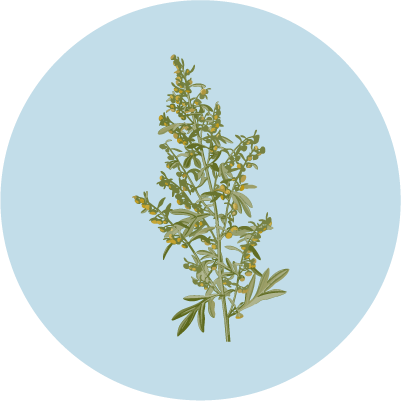
Take infection-fighting herbs
Herbal antimicrobials and coconut-based compounds are safe and effective for infections of all types, and are often more effective than antibiotics.5 Liu Q, Meng X, Li Y, Zhao CN, Tang GY, Li HB. Antibacterial and Antifungal Activities of Spices. Int J Mol Sci. 2017;18(6):1283. Published 2017 Jun 16. doi:10.3390/ijms18061283; https://www.ncbi.nlm.nih.gov/pmc/articles/PMC5486105/ I love simplicity so select herbs that cover all the bases. To deal with lingering Lyme co-infections, reactivated Epstein Barr Virus (EBV), and any candida overgrowth I take 600 mg Ecological Formula’s monolaurin, 1000 mg Karuna Olive Leaf extract, and Apex Energetics’ GI-Synergy,™ which is a powerful infection-flighting blend of herbs including wormwood, black walnut, cat’s claw, pau d’arco, organo extract, and Oregon grape extract.
Minimize Toxins
Just checking in with you. I know this is a lot to take in. By the end of this article you’ll have a number of tools to help you start protecting yourself in just days.
Each of us carries a “toxin bucket” into which go all the potential inflammatory factors — think F.I.G.H.T.S.™ — that enter or are created as byproducts within our bodies. When the bucket overflows, our bodies buckle under the burden, inflammation increases, our guts become leaky, and we become vulnerable to infections like COVID-19 and autoimmunity. We must proactively minimize what comes into our buckets now and reduce what’s already in there. Here are the top things I’m doing to keep my bucket as empty as possible:
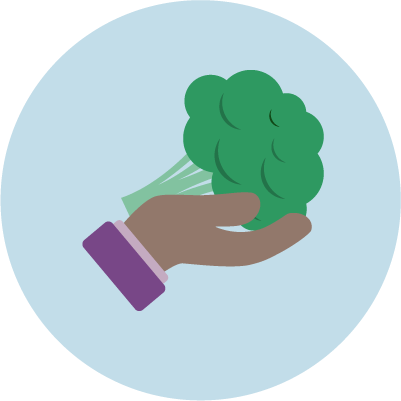
Go organic
Organic produce has up to 60% more antioxidants—protection against autoimmune disease and COVID-19—and up to 100 times lower pesticide residue than conventionally farmed produce.619. Baranski, M., et. al., Higher antioxidant and lower cadmium concentrations and lower incidence of pesticide residues in organically grown crops: a systematic literature review and meta-analyses, British Journal of Nutrition, Volume 112, Issue 5 14 September 2014, pp. 794-811; https://www.cambridge.org/core/journals/british-journal-of-nutrition/article/higher-antioxidant-and-lower-cadmium-concentrations-and-lower-incidence-of-pesticide-residues-in-organically-grown-crops-a-systematic-literature-review-and-metaanalyses/33F09637EAE6C4ED119E0C4BFFE2D5B1 I try to eat 100% grass-fed, organic meats, oils, and veggies — basically, everything I eat and drink. By going all organic we massively reduce our consumption of chemicals. Remember, you are what you eat ate!

Filter your water
While the EPA sets guidelines for allowable limits of contaminants in drinking water, there is no guarantee that those standards are being met. Our local county public water supply is treated with fluoride, and may also contain any number of 2,100 known toxins commonly found in water, like lead, pesticides, bacteria, iron, nitrates, nitrites, chlorine, and copper. To avoid these baddies we use simple water filters in our kitchen, shower and tub faucets.

Detox daily
According to leading integrative health expert, Dietrich Klinghardt, MD, PhD, one of the most important things we can do right now is to focus on detoxifying our overburdened livers. Sweating is one of the most effective methods of detoxing the body of hundreds of different toxins, including heavy metals, PCBs, flame retardants, pesticides, herbicides, and many other harmful chemicals. I know I have an extra burden of mercury and lead, so try to sweat at least a little every day, mostly through exercise, but also through sitting in my infrared sauna. Dr. Klinghardt says 85% of the toxins come out in the first five minutes of sweating, so it doesn’t need to be a marathon session. There are less expensive portable saunas you can find on Amazon. My favorite for low EMF and good quality is the Far Infrared Relax Sauna. If you don’t have access to a sauna right now, you can get similar benefits from sitting in a hot bath. Make it even more nourishing with epsom salts and lavender essential oil.
Address Stress
Stress expert, Heidi Hanna, PhD, and the author of Stressoholic, describes 3 types of stress: tame, tolerable and toxic. Tame is the mild form you quickly get over, like taking a cold shower or doing something a little out of your comfort zone. Tolerable is the kind you may feel after a job loss, break up, or death of a loved one. You eventually get over it if you have the resources and support. Toxic stress is unrelenting, chronic, and includes buried emotional trauma from childhood. Ongoing stress is toxic and causes mega inflammation throughout the body, keeping your immune system weak. These are the top ways I address stress today:

Breathe more slowly and deeply
You can quickly and easily activate the relaxation response by breathing consciously, deeply and slowly. When you hold your in-breath for a comfortable period and then exhale slowly and deeply, you stimulate the vagus nerve, which helps you move out of the stress response and into the relaxation response. 7 Cleveland Clinc Wellness; “What Happens in Vagus” http://www.clevelandclinicwellness.com/programs/NewSFN/pages/default.aspx?Lesson=1&Topic=5&UserId=00000000-0000-0000-0000-000000000705
I make time to do a few minutes of soft belly breathing at least twice a day: before my morning meditation and before my nighttime meditation.
Go to bed earlier
Research is clear that sleep deprivation, defined as 6 or fewer hours a night, negatively impacts gene expression and makes you more vulnerable to infections. 8 Asif N, Iqbal R, Nazir CF. Human immune system during sleep. Am J Clin Exp Immunol. 2017;6(6):92–96. Published 2017 Dec 20 https://www.ncbi.nlm.nih.gov/pmc/articles/PMC5768894/ 9 Effects of insufficient sleep on circadian rhythmicity and expression amplitude of the human blood transcriptome; Möller-Levet, Carla S., et al.; www.pnas.org/content/110/12/E1132 If you have an autoimmune disorder you may need 8 or more hours. I’ve always needed more sleep than most, but now I’m getting extra sleep — for me that’s getting in bed around 8:30 pm. I monitor my sleep with an Oura ring and keep track of my deep sleep, temperature and heart rate variability (HRV).

Connect with loved ones
Studies show that lack of social connection is a greater detriment to health than obesity, smoking and high blood pressure. 10 Klinenberg E. Social Isolation, Loneliness, and Living Alone: Identifying the Risks for Public Health. Am J Public Health. 2016;106(5):786–787. doi:10.2105/AJPH.2016.303166; https://www.ncbi.nlm.nih.gov/pmc/articles/PMC4985072/ On the other hand, strong social connection strengthens your immune system, helps you recover from disease faster, and may even lengthen your life!11 Social relationships and health; JS House, KR Landis, D Umberson, Science 29 Jul 1988: Vol. 241, Issue 4865, pp. 540-545; DOI: 10.1126/science.3399889; https://science.sciencemag.org/content/241/4865/540 I am an introvert who works from home, and now, further isolated with COVID-19, I must be super proactive in staying connected with loved ones. Every day I make sure to reach out to at least one friend or colleague, participate in an online yoga, wellness, or meditation class, and engage in supportive group discussions in my private, members only Facebook group. It is especially heartening during tough times to be part of a group that is committed to healing together. Every week also we enjoy having video dinners with friends.
Balance Your Hormones
Hang in there — almost done! If you’re feeling overwhelmed, I get it. My job is to help you cut through the complexity and get to do-able strategies fast. Hormones are tiny but have a massive impact on your health and immunity. Fortunately hormonal harmony naturally occurs by addressing other F.I.G.H.T.S.™ categories. As you optimize your diet, heal your gut, clear infections, minimize toxins, and address stress, your hormones should naturally fall into line. As I revealed in my book, Beat Autoimmune, I suffered from the 6 biggest hormonal imbalances in America: low vitamin D, low (hypo) thyroid, low DHEA, high estrogen, high insulin, and high cortisol, so continue to take a more assertive approach. These are my top hormone balancing strategies:

Get your D levels up
This one is the easiest way to fill up your immune system reserves and protect against autoimmunity and viral threats. Experts argue about optimal levels. Personally I get my D levels tested twice a year and optimize my level to 70 – 100 ng/ml, often with sun exposure, but also with 5K IU Quicksilver Scientific Liposomal D3 + K2.
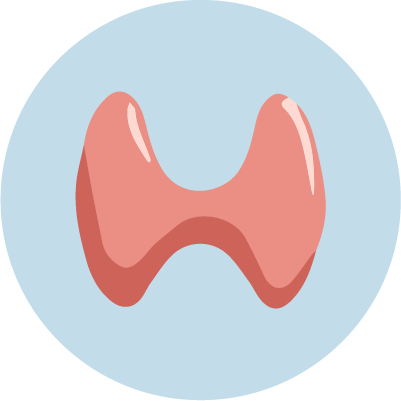
Consider bio-identical hormones
Imbalanced hormones pave the way to a host of bad health outcomes including obesity, diabetes, autoimmunity and Alzheimer’s disease. Low hormones, like postmenopausal levels of estrogen or low thyroid levels, can suppress the immune response. Conversely, when hormones are too high, like estrogen dominance, there are less available immune-protective T-cells in the bloodstream. With hormones, it’s a Goldilocks goal: not too high or too low, but just right. My Goldilocks regime is a combination of oral progesterone before bed; a compounded cream called Bi-est that contains estriol/estradiol, testosterone and DHEA once a day in the morning; and an early morning 3/4 grain dose of NatureThroid, a compounded T3 + T4 medicine. Find and work with a naturopath or integrative doctor with natural hormone expertise.

Go keto periodically
By emphasizing healthy fats, moderating protein intake, and restricting carbs to roughly 70% fat, 25% protein and 5% carbs) with the ketogenic (keto) diet, energy soars, brain function improves, inflammation is lowered, insulin resistance can be reversed; and the ketogenic diet might be protective against viral infections like the flu. Yale University published a recent study showing that mice fed a ketogenic diet and infected with the influenza virus had a higher survival rate than mice on a normal, high-carb diet.
Prevent COVID-19 and Beat Autoimmune with F.I.G.H.T.S.™
These are uncertain and unprecedented times for us all. For those of us with underlying health conditions, the risk for worse outcomes with COVID-19 is real. The time to take proactive action to safeguard your health is right now.
All of this information and the situation itself may be overwhelming. It’s lots to take in and a lot to digest. My hope is that you remember to employ some of my favorite stress-melting strategies, like 10 slow, deep belly breaths, in through the nose, and out through the nose.
Once you feel centered, consider using F.I.G.H.T.S. as a simple framework to help you get organized. Your specific strategies will likely look different than mine. And whether you address each category one at a time or all at once, doesn’t matter, as long as you get going. You will feel more empowered the moment you decide to take proactive steps to safeguard your health.
This is arguably one of the best times to prioritize your health and I invite you to use this time wisely and make your selfcare a priority. As you see positive results, you’ll find the motivation to try more until you’re living the life you deserve, one of vibrant health and wellbeing.
When you implement solid strategies to get your immune system in good fighting shape, you’ll also be protecting your loved ones and the broader community. As Chris Cuomo, CNN news anchor who personally recovered from COVID-19 says, “The cure is in the collective.”
Stay safe, stay connected, and take extra good care!

|
p.s. If you want my personal help and you’re ready, willing, and able to invest in yourself (and you live in the U.S.), I offer Functional Medicine Total Health Transformation Programs in collaboration with a skilled naturopath (ND). If you are ready to beat autoimmune and reclaim your best life you are welcome to a Complimentary Discovery Call with me to gain clarity, confidence, and explore the possibility of working together. You can do it. I can help.
|


